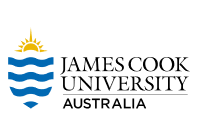Choosing the right MBA specialisation is crucial, as each has unique challenges and skill requirements. Among the most demanding specialisations, fields like Finance, Accounting, and Data Analytics are often considered some of the hardest due to their technical rigour and the need for a strong quantitative background.
Specialisations in Strategy and Consulting also require high critical thinking, problem-solving, and adaptability. Additionally, students in these fields often face intense competition and pressure to excel, which leads to highly competitive and dynamic career paths. Read this blog to know which MBA specialisations are the most challenging and why.
Quick Links To Online MBA Programs
RMIT Online
Master of Business Administration (MBA) Online
- 2.7 years part-time, Reduced duration available
- Jan, Mar, May, July, Aug, Oct
- $4,560 per course, FEE-HELP available
Southern Cross University
Master of Business Administration (MBA) Online
- 2 years part-time
- Jan, Mar, May, July, Aug, Oct
- $2,990 per unit, FEE-HELP available
UTS Online
Master of Business Administration (Online)
- 2 years (minimum), Part-time
- 12 subjects | 7-week study blocks
- $4,250 per subject, FEE-HELP available
James Cook University
Master of Business Administration Global (MBA Online)
- 24 months , Part-time
- $3,700 per subject , FEE-HELP is available
- 12 (One subject per each 7-week study period)
Let’s get straight to the point
The blog discusses the challenges of various MBA specialisations, emphasising that difficulty varies based on individual strengths, backgrounds, and goals. Specialisations like Finance, Data Analytics, and Information Systems are often considered the hardest due to their technical demands, requiring strong quantitative and analytical skills.
Strategy and consulting are also challenging, and critical thinking, problem-solving, and adaptability are needed to thrive in competitive fields.
Factors influencing difficulty include subject complexity, quantitative requirements, workload, prior knowledge, teaching methods, and faculty expectations. Choosing the right specialisation ultimately depends on aligning with one's skills, interests, and career aspirations, as what's "hardest" is subjective.
Australia's Most Difficult MBA Specialisations

While individual experiences may vary, some specialisations are generally considered more challenging in Australia:
1. Finance
Finance is often regarded as one of the most difficult MBA specialisations worldwide. It requires a solid foundation in mathematics, statistical analysis, financial modelling and decision-making proficiency. This specialisation covers complex topics such as financial markets, risk management, and investment strategies, which demand intense focus and analytical skills.
2. Data Analytics
Data analytics is an increasingly popular yet challenging field in Australia. This specialisation requires strong analytical skills and familiarity with statistical software. Students are expected to analyse large data sets and draw actionable insights, with coursework focusing on data visualisation, machine learning, and predictive analytics.
3. Information Systems Management
Information systems management combines business and technology, demanding expertise in both. Students in this specialisation must be knowledgeable about databases, programming languages, and systems development. Topics include enterprise systems, information security, and digital transformation, which require technical and managerial skills.
4. Entrepreneurship
Entrepreneurship is a demanding specialisation that requires creativity, strategic thinking, and resilience. Students learn to create business strategies, make investor pitches, and navigate the challenges of starting and growing a business. Coursework covers opportunity identification, product development, and securing startup funding.
5. Strategic Management
Strategic management prioritises competitive analysis and long-term business strategy advantage. Students must grasp complex business strategies and apply them in various contexts. This specialisation covers strategic analysis, innovation, and organisational design, challenging students to think critically about business success.
These MBA specialisations are often considered the most challenging due to their demanding coursework, analytical requirements, and practical applications.
The Different MBA Specialisations: What Are They?

MBA programs often offer several specialisations, allowing students to focus on specific business fields. Here are some of the most common MBA specialisations:
- Finance
- Focus: Financial management, investment banking, corporate finance.
- Skills Gained: Financial analysis, risk management, financial planning.
- Careers: Investment banking, corporate finance, financial consulting.
- Marketing
- Focus: Customer behaviour, market research, advertising.
- Skills Gained: Digital marketing, product development, brand management.
- Careers: Marketing management, advertising, brand management.
- Human Resources
- Focus: Talent management, employee relations, organisational behaviour.
- Skills Gained: Compensation management, recruitment, training.
- Careers: HR management, organisational development.
- Information Systems Management
- Focus: Technology management within organisations.
- Skills Gained: Database management, systems analysis, technology strategy.
- Careers: IT consulting, technology management, systems analysis.
- Strategic Management
- Focus: Corporate strategy, competitive analysis, ethics.
- Skills Gained: Strategy planning, ethical decision-making, business analysis.
- Careers: Management consulting, strategic planning, general management.
- International Business
- Focus: Global business dynamics.
- Skills Gained: Cross-cultural communication, international trade.
- Careers: Global consulting, roles in multinational corporations.
- Entrepreneurship
- Focus: Starting and managing new businesses.
- Skills Gained: Business idea generation, venture capital management.
- Careers: Small business management, startup consulting.
Factors Determining MBA Specialisation Difficulty
Several factors contribute to the difficulty of each MBA specialisation. Below are some key factors:
- Subject Matter Complexity
- Due to their technical content, specialisations in complex topics, like finance or information systems management, can be more challenging.
- Quantitative vs. Qualitative Focus
- Specialisations requiring quantitative analysis, such as finance and data analytics, may be harder for students who need help with maths or statistics.
- Workload
- Some specialisations, such as entrepreneurship and strategic management, involve heavier workloads, which can be challenging for students balancing work or family commitments.
- Requirements
- Specialisations like finance might be challenging for pupils without the necessary experience because they may need a prior understanding of accounting or mathematics.
- Methods of Instruction
- Learning preferences can affect difficulty; for example, students who prefer traditional lectures may find case studies and group projects more challenging.
- Faculty Proficiency
- The problem is increased by the possibility of more demanding standards for specialisations run by highly experienced professors.
Conclusion
Getting an MBA requires a substantial financial commitment of time, money, and effort. Each specialisation brings distinct possibilities and challenges, and your interests will determine which is best for your skills and career goals.
While finance, data analytics, information systems, entrepreneurship, and strategic management are typically considered the hardest specialisations in Australia, your individual experience may differ based on your background and learning style.
When selecting an MBA specialisation, aim for an area that aligns with your strengths and passions. This will make the journey more fulfilling. Additionally, it ensures that the specialisation has promising career prospects in the job market. Ultimately, the "hardest" MBA specialisation is subjective and varies from person to person.
Frequently Asked Questions
A specialisation in MBA can be challenging for a number of reasons, including the intricacy of the material being studied, the high level of analytical and technical expertise that must be possessed, the intensity of the academic work that must be completed, and the level of competition that exists in the job market.
Indeed, a solid foundation in mathematics, statistics, and programming is required for many of the most challenging specialisations offered by MBA programmes in Australia. In addition, you might need previous job experience or a particular level of academic accomplishment to qualify for some specialisations.
Switching to a different specialisation is possible, but doing so might involve meeting new needs and adhering to new constraints. Students should discuss their alternatives with their assigned academic advisors in order to arrive at the most appropriate next step in their education.
There is little doubt that pursuing a difficult specialisation within an MBA can result in significant benefits, both professionally and personally. The acquired skills and information can lead to professional improvement, which in turn can increase earning potential, in addition to personal growth and development.
It is important to note that the career chances accessible in the most challenging specialisations for an MBA in Australia might vary greatly from one specialisation to the next. On the other hand, in general, these specialisations can lead to professions in management, consultancy, technology, or even entrepreneurship. Graduates have the opportunity to pursue careers in a wide number of fields, such as finance, healthcare, retail, and even the government.





